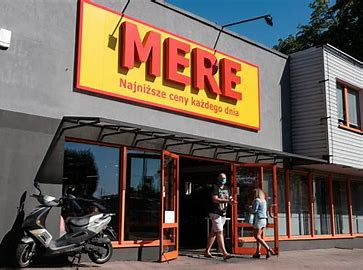French Food - Is It Boring?
According to Lizzie Porter of the Daily Telegraph, new regulations aiming to maintain high standards in French restaurants will do little to change an otherwise boring culinary offering, as the real problem is a lack of innovation in the French food industry.
On the surface, it's a praise-worthy move, that ought to highlight restaurants who prize quality over profit margins, and don’t buy in their tartiflette and crème brûlée from food manufacturing conglomerates of which, alongside its quaint bistros and Michelin stars, France has many (Danone, Tereos, and Comigel, to name just a few). And yet the last thing France needs is yet more rules and symbols to nurture and promote its best cuisine. Already, diners are confronted by an army of stamps and logos that purportly mark quality. Label Rouge denotes free-range eggs and poultry “reared using traditional, free-range production methods”, for example, while AOC – “appellation d’origine contrôlée” (controlled designation of origin) – specifies products, including cheese, meat, lavender and lentils, which have been grown and processed by specific producers in designated geographical areas. The ins and outs of all the various quality stamps are enough to leave even the most passionate foodie scratching his or her head. Indeed, the proof is in le burger when it comes to younger French generations, who seemingly cannot get enough of fast food chains like McDonald’s and Quick (a French version of Maccy D’s). And when the first Parisian Burger King opened last year, locals queued around the block for a taste of the Whopper.
While France has commendably preserved an independent restaurant
industry and pockets of excellent regional cuisine, the latter of which has all
but fallen by the wayside in Britain, its haughty belief that its classics are
better than everyone else’s is the bigger concern. Instead of stifling
restaurant owners with another layer of bureaucracy with which they may comply, the French government would be better to foster an
environment in which diversity and ingenuity in cooking are encouraged. And for
ingenuity, it is simply the adoption of a wider
range of ingredients and cooking styles. In London, Birmingham and Manchester, there's something on offer
from virtually every corner in the world, a fact perfectly demonstrated
recently when Matt Thomlinson, from London, successfully ate cuisine from each of the 32
nations taking part in the World Cup. I for one have experienced Brazilian (below), Korean and Nepalese food within a 5 minute walk of Birmingham city centre.
Inspecting a restaurant menu in London or Birmingham is a delight: do I go for aubergine with za’atar, a modern Sunday roast – maybe roast meat with braised shallots and watercress – or suckling pig with piquillo peppers or just a simple lobster ravioli? In Paris, it’s boring: you know there will be the same tired offering of magret de canard, steak frites, and limp salmon with overcooked green beans almost everywhere you go. Broadly speaking, cooking from France’s naturalised immigrants – from the Magreb and Sub-Saharan Africa, for example – is sidelined. Middle-class Parisians will choose to eat a couscous or a tagine, but this seems ever only to be in specifically Moroccan, Algerian or Tunisian restaurants. Foreign cooking methods and ingredients are not incorporated into the thick cookery bibles of what is considered “French”.
The recent revelation from France's Union of Hotel Industry Professions - that 85
per cent of the country's 150,000 restaurants serve vacuum-packed and frozen
food without telling customers - is perhaps one of the factors that has
prompted the French government to introduce yet more culinary legislation. From last week, a black and white logo of a saucepan, with a roof as a lid,
will be displayed on menus to indicate dishes that are “fait maison”, or home
made. In the very specific and yet nearly wholly meaningless wording of the decree, published last Sunday, it will
denote "a food product having undergone no significant modification,
including being heated, marinated, assembled or a combination of these
procedures".
On the surface, it's a praise-worthy move, that ought to highlight restaurants who prize quality over profit margins, and don’t buy in their tartiflette and crème brûlée from food manufacturing conglomerates of which, alongside its quaint bistros and Michelin stars, France has many (Danone, Tereos, and Comigel, to name just a few). And yet the last thing France needs is yet more rules and symbols to nurture and promote its best cuisine. Already, diners are confronted by an army of stamps and logos that purportly mark quality. Label Rouge denotes free-range eggs and poultry “reared using traditional, free-range production methods”, for example, while AOC – “appellation d’origine contrôlée” (controlled designation of origin) – specifies products, including cheese, meat, lavender and lentils, which have been grown and processed by specific producers in designated geographical areas. The ins and outs of all the various quality stamps are enough to leave even the most passionate foodie scratching his or her head. Indeed, the proof is in le burger when it comes to younger French generations, who seemingly cannot get enough of fast food chains like McDonald’s and Quick (a French version of Maccy D’s). And when the first Parisian Burger King opened last year, locals queued around the block for a taste of the Whopper.
Inspecting a restaurant menu in London or Birmingham is a delight: do I go for aubergine with za’atar, a modern Sunday roast – maybe roast meat with braised shallots and watercress – or suckling pig with piquillo peppers or just a simple lobster ravioli? In Paris, it’s boring: you know there will be the same tired offering of magret de canard, steak frites, and limp salmon with overcooked green beans almost everywhere you go. Broadly speaking, cooking from France’s naturalised immigrants – from the Magreb and Sub-Saharan Africa, for example – is sidelined. Middle-class Parisians will choose to eat a couscous or a tagine, but this seems ever only to be in specifically Moroccan, Algerian or Tunisian restaurants. Foreign cooking methods and ingredients are not incorporated into the thick cookery bibles of what is considered “French”.
The French do not need another food quality label. They need to loosen
up and listen to new ways of preparing and using all the good ingredients
nurtured in their much-vaunted regions.
Then, good, fresh ingredients will prevail, and maybe restaurateurs will feel
less pressed to run to the nearest vacuum-packed or pre-packaged ingredients in
a vain bid to recreate the classics.







Comments
Post a Comment